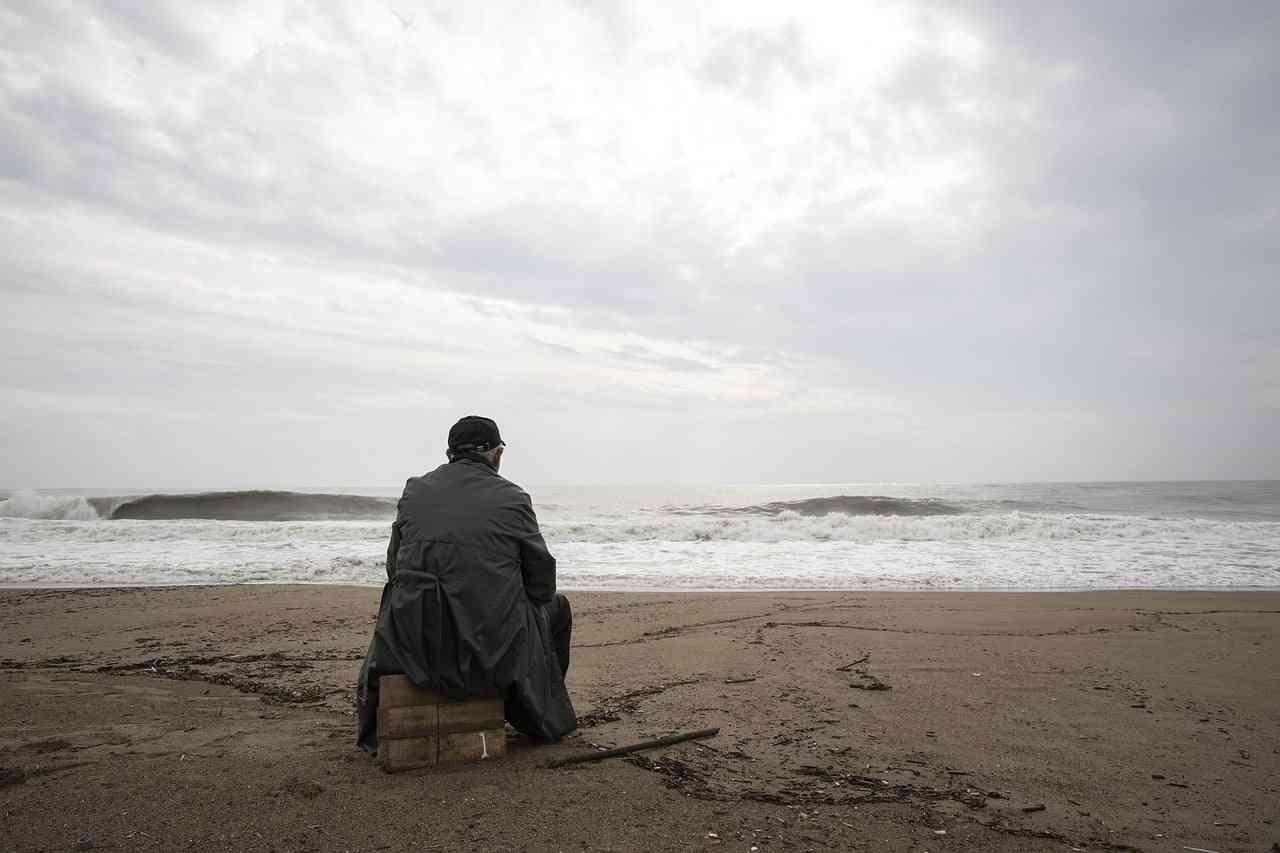When I was 16 and attending high school, depression and loneliness ruled my life. What was baffling was that, in the eyes of people around me, I had everything a young person could wish for. I had a car; I had a great job. I had money for nice clothes, fast food lunches, and all the video games I could play. I even had a few friends. At home, I had a decent stereo, a computer, and a video game console. But none of these things could change my brain chemistry.
The summer after my grade 11 year was a difficult time for me. My best friend had moved out of his parents’ house, and I was unable to contact him. People I thought were my friends not only shunned me but showed outward signs of hating me. I did have a job that paid well, but it seemed to only add to my loneliness. I was delivering pizza, spending most of my time in my car, driving so much I started to hate doing it, even though just a few months before I thought having my own car was the greatest thing that ever could happen.
One of the worst things about my loneliness was that I also struggled with anxiety. I had a hard time talking to people, I couldn’t look them in the eye, and I was extremely self-conscious. It seemed the only time I could relax enough to enjoy myself was when I drank alcohol. But I had no one to drink with and drinking alone only made things seem worse.
Little did I know, I was struggling with an illness that could have been treated easily. But just two years before, I had been put in a psychiatric ward as a young teen and offered medications that would help, and I ended up refusing to take them. Even though my mom took medications, I somehow saw people who relied on doctors and pills to make them feel good to be somehow weak. Perhaps the worst part of all of this was that I had an unhealthy crush on a young woman I met at a summer camp a year before and couldn’t stop thinking about her. I was headed for disaster.
When my grade 12 school year began, I found some respite from my desperate situation. The routine of going to school and doing things with friends lifted me out of the mire for a while, but my fixation on the young woman and my depression remained. No amount of video games, nice cars, dates with pretty girls, or fast food could help me. After high school ended, I opted to go back for a second year of grade 12. Just two months into my studies, a close friend died by suicide. I experienced so much grief and pain over this loss because he had been my one friend who was always encouraging me, coaching me about girls, inviting me to parties at his house, and making me feel welcomed when I would have otherwise just gone home to watch TV until dawn.
My depression was likely a cause of my loneliness. I was always in a bad mood, with a somber face, too nervous to talk to anyone and it drove people away from me. What hurt the most was that I was having a strained relationship with my dad. He was a serious drinker and we often got into fights that sometimes became violent. When you add my loneliness and depression to those incidents, plus my working a night shift job, along with the pressure I was under to finish school, it seems to only make sense that I eventually had a very serious mental breakdown.
When I had my breakdown, I didn’t know it, but I was displaying signs of schizophrenia and bipolar disorder. I became delusional and thought that there were two races of human beings, on one side the nerdy, lonely, weird people, and on the other side the people who had close friends, girlfriends, and played sports. I even hallucinated things that supported these bizarre concepts. I saw the “cool” people as having glowing eyes and hallucinated I could look through their eyes into their souls. I interpreted these visions as me now being a part of the greater body of superior human beings. I desperately wanted to be part of this new “race” I discovered, and thought the requirements were to drink heavily, get into fights, and do drugs.
Soon after this, because of my erratic thoughts and behavior, I was sent to the locked ward of a psychiatric hospital. In the closed confines of that place, I went through unimaginable suffering as my brain revolted against me. My only visitors were my family members and one friend who stuck by. I was in the hospital for three months and got a lot better, but the isolation and stigma surrounding my hospitalization cost me what few friends I had at the time and made me a laughingstock to the people I grew up with. In this disastrous state, unable to even hold a job, I decided I needed to get away from my hometown. I ended up hitchhiking to the west coast.
For the next few years, I went from place to place, between Edmonton to Vancouver, and as far away as Southern California. I had a lot of strange ideas on how I was going to get my life back going again. I took out a student loan to attend commercial pilot’s school, something I loved doing but in the middle of it took off traveling on a whim and a promise that a friend could help me become a military pilot without having to spend tens of thousands of dollars.
In the end, I had another breakdown. I had always acted strangely when I was living out there, and eventually ended up worse than ever. One of the last things I did was contact the young woman I had a crush on from the summer camp years before. We had an amazing few weeks of frequent phone conversations and then I started sinking back into delusions and hallucinations. Even though she eventually cut off contact with me, I thought if I returned to Edmonton and accepted my treatment, she would welcome me back and perhaps even marry me. I was never to speak to her again.
I did end up settling in and accepting my illness and my treatment. Little was being done about my depression though. One day I felt crushed by my mood, and my psychiatrist wasn’t doing much to help me, so I went to a family doctor and was put on Prozac. This was the one drug that did the most for me in all the treatments and therapies I had been given. My moods soon improved, I got better sleep and it seemed to have a component to it that helped lower my social anxiety.
Years went by, and though I sometimes had psychosis (hallucinations and delusions) and depression, my worst problem was simply being lonely. I learned later that loneliness is such a severe issue for people with schizophrenia that 4 in 10 will attempt suicide and 1 in 10 will die by suicide. When one considers schizophrenia affects 1 in 100 people, that works out to millions of needless deaths each year.
The big change in my condition finally happened after I had been through the worst time of my life. I had been in the psychiatric hospital for six long, tortuous months just before turning 30, and had been brought to my knees. Most of that time my doctor wasn’t giving me the medication I needed, and I had been put into seclusion so many times the staff stopped even pretending to have a valid reason to put me there. They simply locked me inside that horrible room with nothing in it but a blanket and a plastic mattress any time they felt like it.
One of the things that makes life incredibly difficult for people with mental illnesses is that when on their own, they experience depression and loneliness, as I did. Going into the hospital, though you lose your freedom and are often treated like a child, is a respite from loneliness and there is always the hope that you will get medication that will help you. This often drives people to seek hospital admissions even when not needed.
When I point out the fact that this happens to many patients during talks I give, I like to stress the fact that people like this don’t just need medications, they need therapy and support to address their social issues. It is proven that therapy alone gives better results than medication alone. Of course, this doesn’t mean one should stop taking medications and get therapy, but it does mean patients should be treated with both for the best results, something which was never done for me until I sought my own counseling.
After my six-month stay in the psychiatric hospital, I was defeated. It was strongly recommended that I go to live in a group home. I did for a couple of months, but the place was horrible. It was far from anyone I knew; it was in a small town with few resources, and my landlady seemed to be just scamming the system to make psychiatric patients pay her mortgage and do her grunt work around the house. I left there, almost going back to the guaranteed disaster situation of living alone, but instead took a chance and went into a group home in the city run by a reputable charity.
The new group home was a wonderful place. The food was good, I was in a house that wasn’t supervised. The staff were kind and helpful, often taking us to the movies or out to play sports, have coffee, or play pool. But the greatest thing about it was there were always people around to talk to and things to talk about. I formed some solid friendships with some of the staff and many of the residents. It was hard at first to accept some of the strange habits of the other people in the five-house project, but after a short while, I found I had many things in common with them. It was at this time that I began to build a life I could be proud of.
Despite our difficulties in the past, my dad really stepped up. He would drive to my home every day and take me for long walks in Edmonton’s beautiful river valley. The fresh air and exercise and companionship laid the groundwork for much healing. As time went on, we would go to all the city’s parks and eventually bought and learned how to use digital cameras, making a contest of getting pictures of wildlife.
I still had a lot of time to myself, and I re-kindled a love of books. Over the next year, I read just about everything John Steinbeck wrote and many other books. Then, one of the best things in my life happened. I had an ex-girlfriend who I had been close friends with for years who I was estranged from when I was ill before my last hospitalization. I took a chance and went to see her and in tears, she forgave me and accepted me back into her life. We met up and talked on the phone often after that and she gave me something that changed the course of my life. I had given her a copy of a manuscript I had written about my mental health journey a few years before and she gave it back to me. That was 20 years ago, and we are still close, and still talk every day.
In addition to having someone special in my life, as soon as I could, with the help of a computer my dad helped me buy, I went back to work on my manuscript. About a year later, I had something that I could send to an editor but didn’t know how. I was lucky enough to have found a well-paying job as a stagehand for major concerts and then another young woman I had gone to school with connected me with an editor she knew. It took months and a fair bit of money, but she made the book into something respectable and I self-published it.
It was hard at first to sell my book, but I kept looking for ways to improve my life and work in the mental health field. I ended up connecting with my local Schizophrenia Society and they offered me a job as a lived experience presenter of mental health information. They even said I was welcome to sell my books when I gave talks to the various groups they served, ranging from high school students to full university lecture halls and even the Edmonton City Police Recruit Class. Doing public speaking was difficult at first, but I ended up giving hundreds of presentations, and it not only helped me to sell my books, but it also gave me a new sense of confidence and self-respect.
I believe that isolation is the worst thing that can happen to a person. But I also believe there are steps a person can take to overcome loneliness that don’t require you to be hospitalized. Hospitalization, even if it helps your illness, does little for loneliness, and even makes it worse because you begin to associate treatment with happy times when treatment should be a time for healing, not a person’s only social outlet.
The first step I feel people who are lonely should take is to deal with any critical issues. At twenty, I had a problem with alcohol and later I had a problem with gambling. I sought out counseling to help me deal with this and attended 12-step meetings. It is important not to put your focus on therapy and abstinence groups for your social outlets though. I have made some good friends with people I met in 12-step groups, but I attended them to help change negative habits and talk things out, not to meet people. I have a friend who used to tell me that if you sober up a drunken horse thief, you still have a horse thief.
One of the other things that is so important is proper therapy. For many, this is an expensive proposition, but it is critical to investigate it regardless. Many insurance policies will cover certain therapists, and many therapists will offer services on a sliding scale or even give a limited number of free sessions if asked. I recently got eight free sessions and it did me a great deal of good.
Once you have your pressing problems dealt with, look for positive ways you can enrich your life. One of the first things I did when I left the hospital was to find work as a security guard. Volunteer jobs work too and can lead to paid positions. I ended up working in a hospital and met a nurse I became close friends with. I was also able to save my money and take a trip across Canada to visit my sister.
Before I found that job, I wanted to find ways to become more fit, lose weight, and get in shape for work opportunities. It was hard at first, but I started going to a pool at the same time each day and met people I am still friends with 15 years later. I feel that conquering loneliness is possible for anyone, it starts with healing and then you need to make yourself a part of a larger group, a community that supports and cares about you. I believe that once you have made a routine and a life for yourself, you can establish healthy, solid relationships, and as happened to me, you can heal from just about anything.
Image by Engin Akyurt from Pixabay
Leif Gregersen is an author of fiction and non-fiction, and has published 12 books, of which 4 are poetry collections, 3 are short story collections, 2 are short novels, and 2 are memoirs of his life experience with mental illness.








